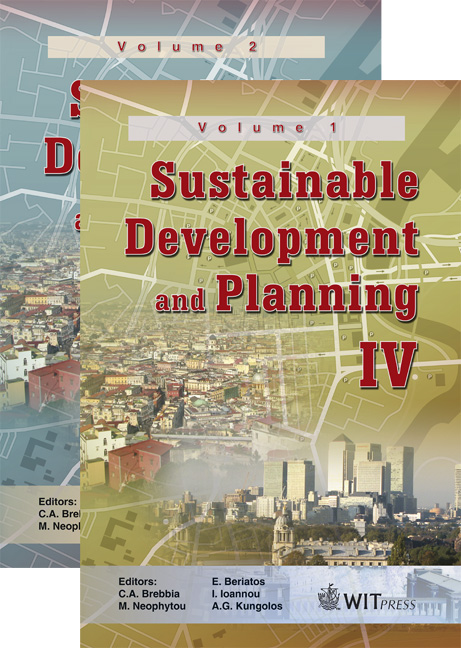Towards Sustainable Spa Tourism Activities In Greece
Price
Free (open access)
Transaction
Volume
120
Pages
9
Page Range
773 - 781
Published
2009
Size
699 kb
Paper DOI
10.2495/SDP090712
Copyright
WIT Press
Author(s)
E. Beriatos & M. Papageorgiou
Abstract
Thermal (Spa) tourism in Greece has been developed since the beginning of the 19th century thanks to numerous significant thermal springs spread all over the country. After having reached its time of prosperity during ’50s, 60s and 70s Spa tourism entered a period of recession and decline. For the last 20 years Greek spa towns and especially their infrastructure (thermal installations) have been suffering from abandonment and degradation. Parallel to these developments, some new categories of visitors / clients of thermal springs have also appeared as a consequence of the broader socio-economic and cultural changes. This paper presents and comments on some results of a research conducted by the authors in the most important spa towns of Greece (Edipsos, Kamena Vourla, Loutra Ypatis) which represent 47% of the spa tourists. The principal objective was to survey the basic characteristics of the users of thermal springs (by questioning them) as well as the opinion of local authorities and managers of companies/enterprises operating in the area. Particularly, the results concerning the profile of spa tourists have a special scientific interest since they prove that commonly held opinions and ideas in relation to spa tourism are often fully mistaken. Besides the research shows the emerging structural planning problems derived from the different needs of ‘classic’ and ‘modern’(contemporary) spausers opposing each other and thus preventing local economies and societies to get full profit from a special/alternative form of tourism, traditionally considered as a comparative advantage of the country. Keywords: spa tourism, spa towns, classic and modern spa tourists, thermal springs, regional planning and development.
Keywords
spa tourism, spa towns, classic and modern spa tourists, thermal springs, regional planning and development.





